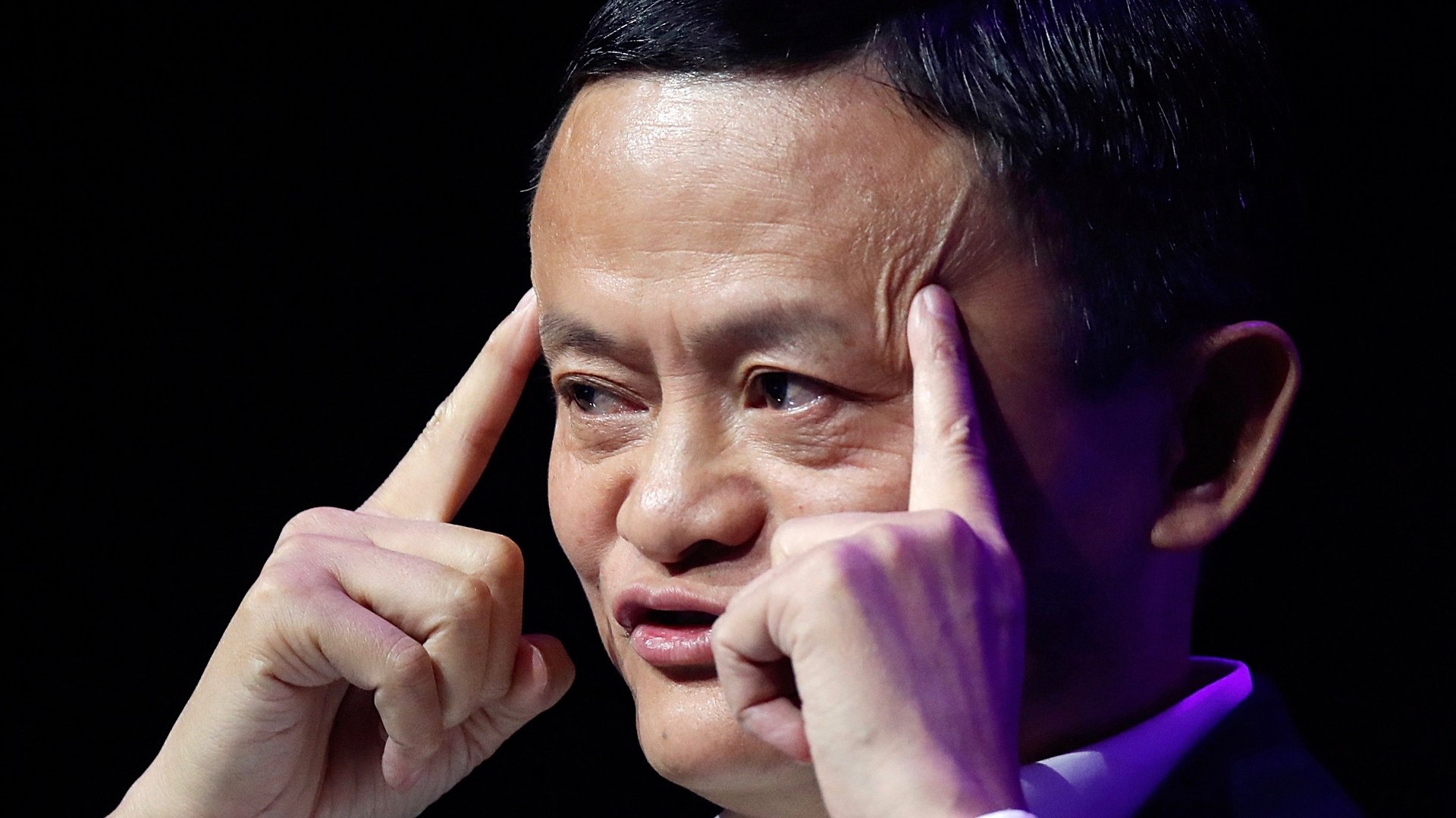Jack Ma is the coronavirus ambassador that China needs
An aggressive campaign by China to re-shape the global narrative around the coronavirus pandemic has seen officials and diplomats peddling conspiracy theories about American involvement, representing the sharper, uglier face of Chinese diplomacy. Alibaba founder Jack Ma is now providing the counter-balance to that.


An aggressive campaign by China to re-shape the global narrative around the coronavirus pandemic has seen officials and diplomats peddling conspiracy theories about American involvement, representing the sharper, uglier face of Chinese diplomacy. Alibaba founder Jack Ma is now providing the counter-balance to that.
Ma, who retired as chairman of the e-commerce juggernaut in September, joined Twitter on March 16, and in his first tweet posted photos of shipments of 1 million masks and 500,000 coronavirus test kits being sent to “our friends in America” from China. The donations were made jointly by his philanthropic foundation and the Alibaba Foundation. Following that, Ma has continued to announce the donations of supplies to over 60 countries, including several in Europe and every African nation.
Ma’s tweets and actions struck a decidedly different tone to the more combative and nationalistic posture displayed by China’s diplomats on social media in recent weeks. The amiable ambassador role is a natural one for Ma, who became the best-known face of corporate China as its economy transformed into a tech powerhouse in the last two decades. The former English teacher was a fixture at world events, such as Davos, where his playful persona helped build confidence in the country’s economy.
Where China’s official diplomats have taken a more divisive approach in recent days, Ma’s tweets have struck an “all in this together” note.
“Now it is as if we were all living in the same forest on fire. As members of the global community, it would be irresponsible of us to sit on the fence, panic, ignore facts or fail to act,” Ma wrote in a statement announcing the donation of six million face masks and over a million test kits to African countries.
And in a post on Chinese social network Weibo (link in Chinese) he wrote, “United we stand, divided we fall!”, a phrase used by American revolutionaries and by Winston Churchill in wartime.
Ma’s presence on the global stage in the past helped soften rising global scrutiny towards China’s increasingly authoritarian state, say some observers. Chinese diplomacy scholar Sun Xingjie called him (link in Chinese) “one of the few capable people in China who can engage in public diplomacy,” after Ma met with Donald Trump in 2017, and promised to bring one million jobs to the US in a bid to help prevent a US-China trade war.
This time around, too, Ma’s high-profile donations could potentially generate goodwill abroad, and help deflect criticism of China’s cover-up of the virus in the early days, and silencing of citizen journalists and critics. Ma’s overtures come as Beijing has embarked on a global propaganda push to reshape its image as a responsible leader that bought the world time to help it tackle the virus—and whose experiences other countries can learn from.
“China’s leaders are pushing to demonstrate that as a benevolent and responsible stakeholder, it will help other nations in need to get through this crisis. Donations from high-profile figures like Ma contribute to these messages,” said Natasha Kassam, a research fellow at the Lowy Institute in Sydney and a former Australian diplomat.
Ma has also been tweeting about a digital handbook published by the two foundations about the experiences of frontline Chinese medical workers in screening, diagnosing and treating patients with COVID-19, as the disease caused by the virus is known.
But as with his ultimately unsuccessful efforts to get Trump to regard China as an economic ally and not a foe, Ma’s efforts are set to be overshadowed by the growing tensions between the US and China, who have seen their war of words over the coronavirus pandemic escalate quickly. Chinese foreign ministry spokesperson Zhao Lijian last week tweeted a series of conspiracy theories suggesting that the virus might have been brought and spread by the US army to China—leading to a stern rebuke from US secretary of state Mike Pompeo—while US president Donald Trump this week referred to the coronavirus as “the Chinese virus,” which China’s foreign ministry in turn expressed anger over.
In their latest showdown, China announced on Tuesday that it will expel US nationals working in China for the New York Times, the Wall Street Journal, and the Washington Post, after the Trump administration designated Chinese state-owned media outlets as foreign missions and limited the number of Chinese staff they could have in the US.
Still, despite the differences in their approaches, “the aggressive style of [China’s officials] and the soft power push from Jack Ma are both contributing to China’s efforts to rewrite the narrative of COVID-19,” said Kassam.